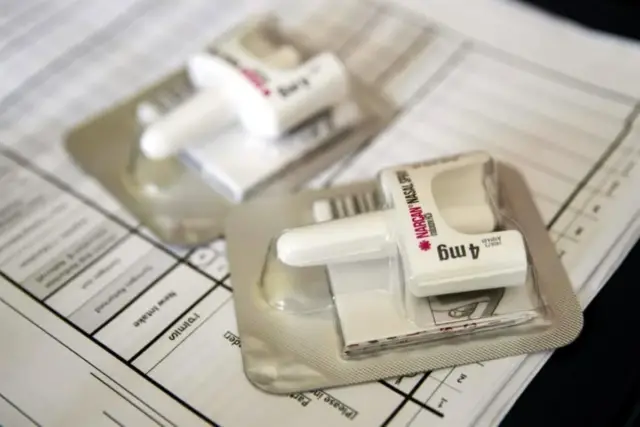High school students in Canada will be trained to nasally administer naloxone, the main drug used to treat opioid overdoses. They will also have information sessions about the risks of these substances, about the symptoms of overdoses and to learn other ways to help. According to Statistics, Canada (the federal agency in charge of collecting official data), some 27,000 people have died in the country between January 2016 and September 2021 from these drugs, especially from the use of fentanyl and carfentanil.
Young people aged 15 to 24 represent the group with the highest growth rate in terms of hospital care for overdose. The wave of opioid deaths in North America has not just ravaged Americans.

The training will be carried out by the Advanced Coronary Treatment Foundation (ACT), an organization that already provides training in cardiopulmonary resuscitation and the use of external defibrillators in these schools. “The landscape of emergency response is changing in Canada due to the increase in opioid overdoses. And in this we all have a role to play”, said Sandra Clarke, executive director of ACT, last Tuesday.
The initiative –the result of a pilot program carried out in four high schools in the city of Ottawa in 2019– will be launched in Quebec, Alberta, British Columbia and Ontario before it reaches the rest of the provinces. Many teachers are receiving this training to help prepare students for the coming school year. The program is contemplated for students from public schools and is not mandatory. About 350,000 students are expected to participate each year.
“All corners of the country have felt the tragic consequences of the overdose crisis”, said Carolyn Bennett, federal minister of Mental Health and Addictions. Bennett appreciated ACT’s commitment to this program and the interest of “many people who choose to learn these valuable, life-saving skills”. The Canadian Government and various private associations finance this plan.
In the first 9 months of 2021, 5,386 deaths from opioid toxicity were reported in Canada. British Columbia was the most affected province: 2,236 such deaths. Since 2016, its authorities have classified the wave of overdoses as a public health emergency. On May 31st, it was announced that this province will be the first in Canada to obtain a permit from the federal government for the decriminalization of the possession of a maximum of 2.5 grams of opioids, cocaine, methamphetamine, and MDMA.
The measure will enter into force on January 1st, 2023, and will have a probationary period of 2 years and could be renewed. Other governments -provincial and municipal- seek Ottawa to apply the same provision in their jurisdictions.

For those who have experienced shifts in consciousness and know that more peace, joy, and love awaits in a better living environment. A bold shared vision. A living community and hub for innovation. A sustainable ecosystem for living and working. A model for the new future.
